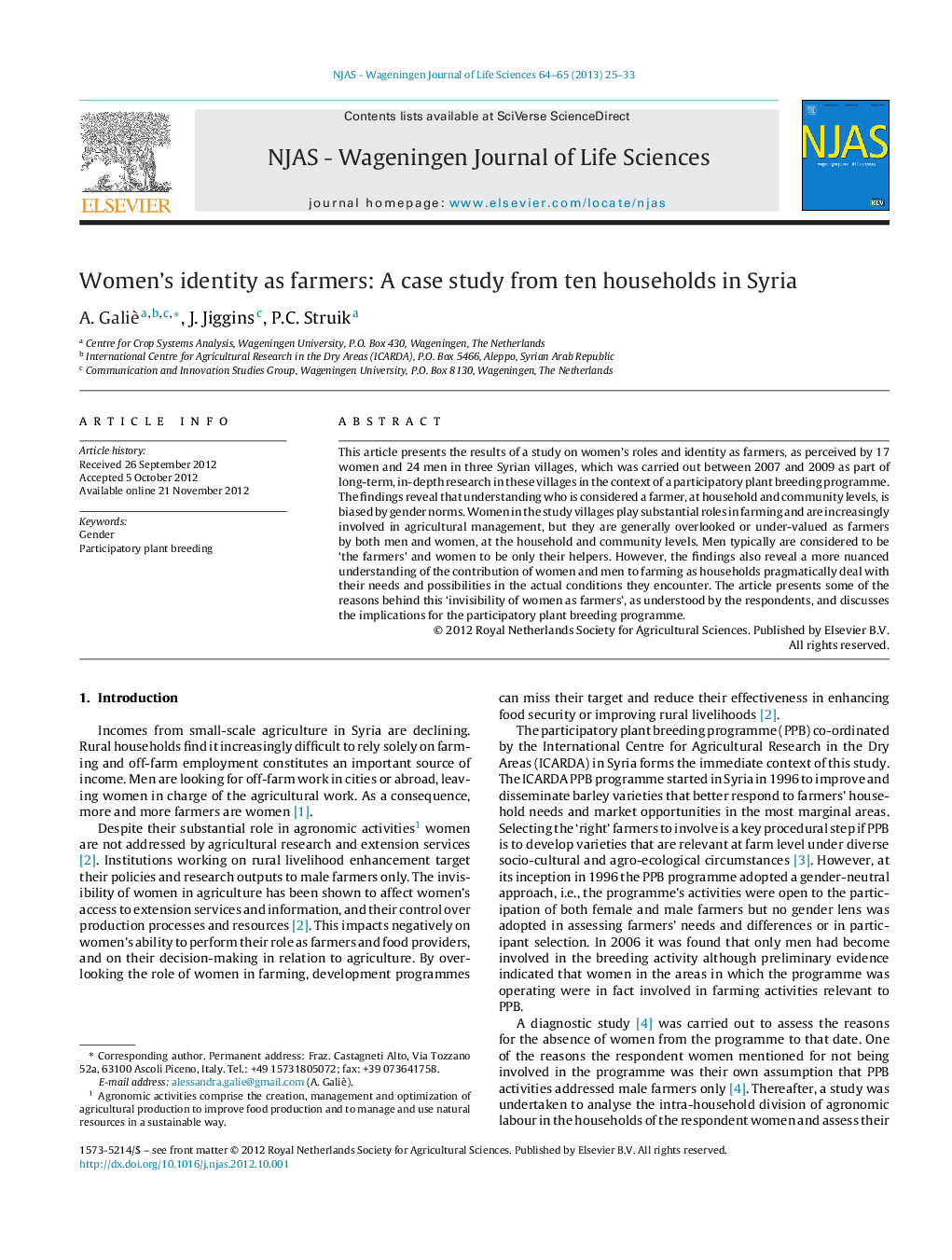| Article ID | Journal | Published Year | Pages | File Type |
|---|---|---|---|---|
| 4501315 | NJAS - Wageningen Journal of Life Sciences | 2013 | 9 Pages |
This article presents the results of a study on women's roles and identity as farmers, as perceived by 17 women and 24 men in three Syrian villages, which was carried out between 2007 and 2009 as part of long-term, in-depth research in these villages in the context of a participatory plant breeding programme. The findings reveal that understanding who is considered a farmer, at household and community levels, is biased by gender norms. Women in the study villages play substantial roles in farming and are increasingly involved in agricultural management, but they are generally overlooked or under-valued as farmers by both men and women, at the household and community levels. Men typically are considered to be ‘the farmers’ and women to be only their helpers. However, the findings also reveal a more nuanced understanding of the contribution of women and men to farming as households pragmatically deal with their needs and possibilities in the actual conditions they encounter. The article presents some of the reasons behind this ‘invisibility of women as farmers’, as understood by the respondents, and discusses the implications for the participatory plant breeding programme.
► Understanding of who is considered a farmer is biased by societal gender norms. ► Deviance from the norm of ‘what women are supposed to do and be’ occurs in daily life. ► Women's farm work in this study was accepted when performed within the consensus norm. ► Social determinants affected women's assertion of their identity as farmers. ► Recognition of women as farmers might not correspond to their increased capabilities.
